1. Clicking ▼&► to (un)fold the tree menu may facilitate locating what you want to find. 2. Videos embedded here do not necessarily represent my viewpoints or preferences. 3. This is just one of my several websites. Please click the category-tags below these two lines to go to each independent website.
2017-01-21
A brief history of numerical systems - Alessandra King
source: TED-Ed 2017年1月19日
View full lesson: http://ed.ted.com/lessons/a-brief-his...
1, 2, 3, 4, 5, 6, 7, 8, 9... and 0. With just these ten symbols, we can write any rational number imaginable. But why these particular symbols? Why ten of them? And why do we arrange them the way we do? Alessandra King gives a brief history of numerical systems.
Lesson by Alessandra King, animation by Zedem Media.
How Much More to Physical Reality? (Closer to Truth)
source: Closer To Truth
What is the farthest extent of the physical world, not only cosmologically across the universe but also conceptually across laws of nature? Can there be radical new discoveries in the 21st century as relativity and quantum mechanics were in the 20th century?
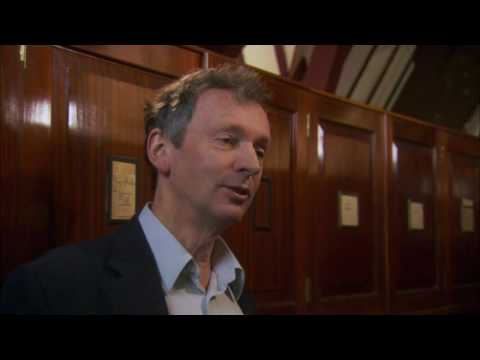 3:26 Rupert Sheldrake - How Much More to Physical Reality?
3:26 Rupert Sheldrake - How Much More to Physical Reality?
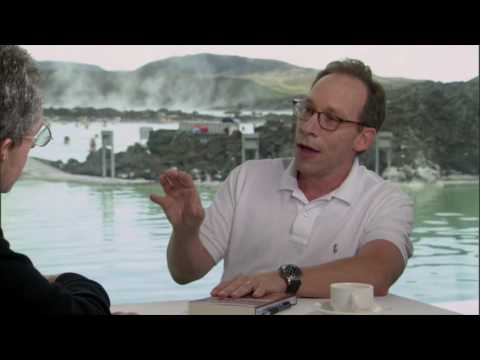 3:22 Lawrence Krauss - How Much More to Physical Reality?
3:22 Lawrence Krauss - How Much More to Physical Reality?
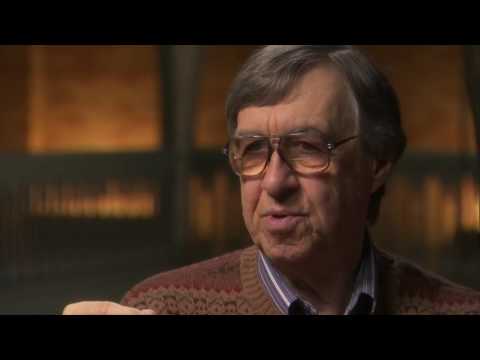 8:14 Charles Tart - How Much More to Physical Reality?
8:14 Charles Tart - How Much More to Physical Reality?
What is the farthest extent of the physical world, not only cosmologically across the universe but also conceptually across laws of nature? Can there be radical new discoveries in the 21st century as relativity and quantum mechanics were in the 20th century?
 3:26 Rupert Sheldrake - How Much More to Physical Reality?
3:26 Rupert Sheldrake - How Much More to Physical Reality? 3:22 Lawrence Krauss - How Much More to Physical Reality?
3:22 Lawrence Krauss - How Much More to Physical Reality? 8:14 Charles Tart - How Much More to Physical Reality?
8:14 Charles Tart - How Much More to Physical Reality?
Is God All Knowing? (Closer to Truth)
source: Closer To Truth
What does it mean for God to be all-knowing? Would God have to know everything? What's everything? Does being omniscient make sense? In other words, is it coherent that even a supreme mind, if such a thing exists, could know all?
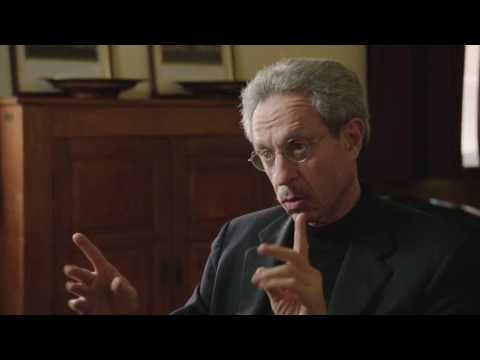 8:55 Paul Fiddes - Is God All Knowing?
8:55 Paul Fiddes - Is God All Knowing?
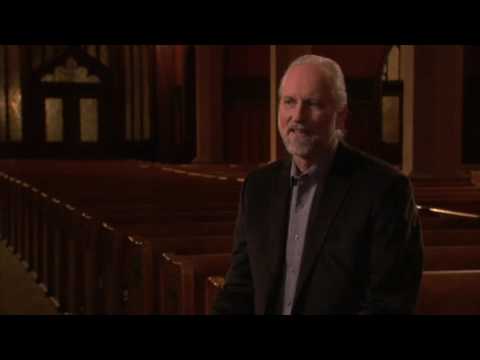 12:46 Edward Wierenga - Is God All Knowing?
12:46 Edward Wierenga - Is God All Knowing?
 7:19 Yujin Nagasawa - Is God All Knowing?
7:19 Yujin Nagasawa - Is God All Knowing?
What does it mean for God to be all-knowing? Would God have to know everything? What's everything? Does being omniscient make sense? In other words, is it coherent that even a supreme mind, if such a thing exists, could know all?
 8:55 Paul Fiddes - Is God All Knowing?
8:55 Paul Fiddes - Is God All Knowing? 12:46 Edward Wierenga - Is God All Knowing?
12:46 Edward Wierenga - Is God All Knowing? 7:19 Yujin Nagasawa - Is God All Knowing?
7:19 Yujin Nagasawa - Is God All Knowing?
How Should Religion Talk to Science? (Closer to Truth)
source: Closer To Truth
To do good theology, religion must speak with science if only to avoid the embarrassment of supernatural explanations when natural explanations are doing just fine. If religion claims to be an approach to the entirety of existence, then it must embed the discoveries and insights of science.
 7:45 Stephen Law - How Should Religion Talk to Science?
7:45 Stephen Law - How Should Religion Talk to Science?
 8:54 Christopher Southgate - How Should Religion Talk to Science?
8:54 Christopher Southgate - How Should Religion Talk to Science?
 8:10 Niels Henrik Gregersen - How Should Religion Talk to Science?
8:10 Niels Henrik Gregersen - How Should Religion Talk to Science?
To do good theology, religion must speak with science if only to avoid the embarrassment of supernatural explanations when natural explanations are doing just fine. If religion claims to be an approach to the entirety of existence, then it must embed the discoveries and insights of science.
 7:45 Stephen Law - How Should Religion Talk to Science?
7:45 Stephen Law - How Should Religion Talk to Science? 8:54 Christopher Southgate - How Should Religion Talk to Science?
8:54 Christopher Southgate - How Should Religion Talk to Science? 8:10 Niels Henrik Gregersen - How Should Religion Talk to Science?
8:10 Niels Henrik Gregersen - How Should Religion Talk to Science?
Emmanuel Levinas (Contemporary Sociology Theory at METU) by Erdoğan Yıldırım
Contemporary Sociology Theory - WEEK 14 - Emmanuel Levinas
Instructor: Assoc. Prof. Erdoğan Yıldırım
For Lecture Notes: http://ocw.metu.edu.tr/course/view.php?id=249
 40:29 Emmanuel Levinas - Lecture 2
40:29 Emmanuel Levinas - Lecture 2
 47:43 Emmanuel Levinas - Lecture 1
47:43 Emmanuel Levinas - Lecture 1
Instructor: Assoc. Prof. Erdoğan Yıldırım
For Lecture Notes: http://ocw.metu.edu.tr/course/view.php?id=249
 40:29 Emmanuel Levinas - Lecture 2
40:29 Emmanuel Levinas - Lecture 2 47:43 Emmanuel Levinas - Lecture 1
47:43 Emmanuel Levinas - Lecture 1
Heidegger: From Phenomenology to Ontology (Contemporary Sociology Theory at METU) by Erdoğan Yıldırım
Contemporary Sociology Theory - WEEK 13 - Heidegger: From Phenomenology to Ontology
Instructor: Assoc. Prof. Erdoğan Yıldırım
For Lecture Notes: http://ocw.metu.edu.tr/course/view.php...
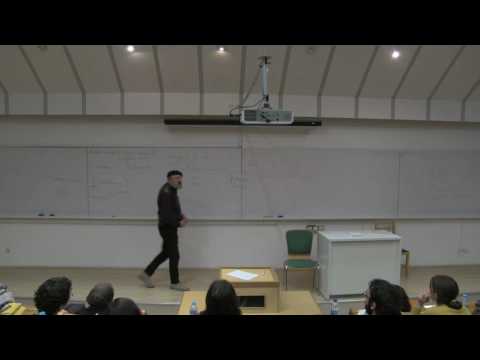 1:10:09 Heidegger: From Phenomenology to Ontology - Lecture 4
1:10:09 Heidegger: From Phenomenology to Ontology - Lecture 4
 34:54 Heidegger: From Phenomenology to Ontology - Lecture 3
34:54 Heidegger: From Phenomenology to Ontology - Lecture 3
 40:40 Heidegger: From Phenomenology to Ontology - Lecture 2
40:40 Heidegger: From Phenomenology to Ontology - Lecture 2
 42:03 Heidegger: From Phenomenology to Ontology - Lecture 1
42:03 Heidegger: From Phenomenology to Ontology - Lecture 1
Instructor: Assoc. Prof. Erdoğan Yıldırım
For Lecture Notes: http://ocw.metu.edu.tr/course/view.php...
 1:10:09 Heidegger: From Phenomenology to Ontology - Lecture 4
1:10:09 Heidegger: From Phenomenology to Ontology - Lecture 4 34:54 Heidegger: From Phenomenology to Ontology - Lecture 3
34:54 Heidegger: From Phenomenology to Ontology - Lecture 3 40:40 Heidegger: From Phenomenology to Ontology - Lecture 2
40:40 Heidegger: From Phenomenology to Ontology - Lecture 2 42:03 Heidegger: From Phenomenology to Ontology - Lecture 1
42:03 Heidegger: From Phenomenology to Ontology - Lecture 1
“The Aesthetics of Activism: Afro-Futurism, Xenofeminism, and Disobedient Objects”
source: Yale University 2016年12月6日
This session of the J. Irwin Miller Symposium, “Aesthetic Activism” evaluates the role of physical objects and architectural form in social change; recognizes new relationships between social definitions and architectural space formulates new ideas about how architecture can be more interdisciplinary; investigates the evolving definitions of genders and their potential relationship to space; and formulates new ideas about how architecture can better address contemporary social problems.
Nettrice Gaskins (Boston Arts Academy), Diann Bauer (Artist),
Catherine Flood (Victoria and Albert Museum),
Jonathan Massey (California College of the Arts)
Peggy Deamer (Yale University), Introduction and Discussion Moderator
Mario Batali: Parmigiano-Encrusted Cotechino; Science and Cooking Public Lecture Series 2016
source: Harvard University 2016年12月9日
Enroll in Science & Cooking: From Haute Cuisine to Soft Matter Science from HarvardX at https://www.edx.org/course/science-co...
Top chefs and Harvard researchers explore how everyday cooking and haute cuisine can illuminate basic principles in physics and engineering, and vice versa.
The recording of these lectures was supported by the Harvard MRSEC program of the National Science Foundation under award DMR-1420570 MRSEC (http://www.mrsec.harvard.edu/), SEAS (http://www.seas.harvard.edu/), and HarvardX.
Panel: Frontiers in Technologies
source: Stanford 2016年12月5日
From the October 24th mediaX Sensing and Tracking for 3D Narratives Conference, this panel consisting of Jay Borenstein a Lecturer in Computer Science at Stanford University, Vincent Chang a SR. Engineer with ITRI, Nick Haber a Post Doc Scholar with the Wall Lab at Stanford University and Nitish Padmanaban a PhD Student with the Computational Imaging Lab at Stanford University discuss how the new technologies they are currently working on will shape the next set of stories.
Professor Ian Owens & Dr. Vince Smith: "Species to Pixels" | Talks at Go...
source: Talks at Google 2016年12月28日
London’s Natural History Museum is one of the most famous museums in the world - and one of the Google Cultural Institute’s newest flagship partners. Talks at Google is delighted to welcome Dr. Ian Owens, Director of Science, and Dr. Vince Smith, Research Leader, of the NHM in London to our offices.
Recorded November 2016
In collaboration with the Google Cultural Institute, Matt Brittin hosted this panel discussion with the two leading NHM scientists to discuss scientific research at the Museum, and its ongoing work and plans for digitisation and machine learning.
About Dr. Ian Owens:
Professor Ian Owens was appointed as Director of Science at the Natural History Museum, London, in October 2011. He joined the museum from Imperial College London, where he was head of the Department of Life Sciences. He has previously worked at the Institute of Zoology, London, and at the University of Queensland, Australia, and has had extensive involvement with learned societies, governmental and non-governmental agencies. He is an Honorary Research fellow of the Zoological Society of London and sits on the Natural Environment Research Council’s Post-Genomics and Proteomics steering committee. He is a Vice President of the Council of the British Trust for Ornithology and a Trustee of the National Biodiversity Network.
As Director of Science, Professor Owens oversees the work of over 300 scientists who are based at the Museum. He sets the strategic direction of the Museum’s scientific activities. This includes ensuring that the Museum meets its national and international responsibilities and the wider needs of society. He is also responsible for the Museum’s vast scientific collection of 70 million scientific specimens from all parts of the world. His research interests include large-scale patterns of biodiversity, ecological impacts of climate change, genetics of wild populations, speciation and diversification, phylogeny and ecology of extinction.
About Dr. Vince Smith:
Vince Smith is a research leader in informatics and head of the Informatics Division at the Natural History Museum, London, where he applies digital technologies to the study of taxonomy and biodiversity. He leads the Museum’s informatics initiative, building the NHM Data Portal and is at the forefront of developing new approaches to the mass digitisation of the museum’s 80 million specimens. Vince coordinates a series of EC and UK funded projects (e.g. SYNTHESYS3, ViBRANT, and eMonocot), is editor-in-chief of the Biodiversity Data Journal and a founding developer of the Scratchpad project. His taxonomic expertise is on parasitic lice and he works on the Museum's 100k+ louse specimens to better understand the coevolution these parasites on their bird and mammal hosts.
Katherine Maher: "The Sum of All Knowledge" | Talks at Google
source: Talks at Google 2016年12月20日
Katherine Maher is the the Executive Director of Wikimedia Foundation. In this talk, she shared with us the challenges, mission and vision about Wikimedia Foundation, the parent organization of Wikipedia.org and it’s sister projects
Katherine Maher is the Executive Director of the Wikimedia Foundation, the nonprofit organization that supports Wikipedia and its sister projects. She is a longtime advocate for free and open societies, and an expert in leveraging technology for social impact.
Katherine was appointed Executive Director in July 2016, after serving as the organization’s first Chief Communications Officer. She has lived and worked around the world, leading the introduction of technology and innovation in human rights, good governance, and international development.
She was a founding member of the UNICEF Innovation team, where she helped introduce open source innovation for health and child welfare. She has worked with the National Democratic Institute, the World Bank, and Access Now on programs supporting innovative technologies for democratic participation, civic engagement, youth entrepreneurship, open government, and human rights.
Rejuvenating the Mitochondria by Matthew O'Connor
source: GoogleTechTalks 2016年12月15日
A Google TechTalk, 12/09/16, presented by Matthew O'Connor
ABSTRACT: "Engineering Approaches to Combating the Diseases and Disabilities of Aging: Rejuvenating the Mitochondria." This is a talk for a general audience on the work of the SENS Research Foundation to fight age related diseases with a focus on repairing the damage that accumulates as we age. The SENS Research Foundation recently published a paper on their research into repairing cells that lack two of the thirteen essential mitochondrial proteins. The SRF scientists were able to reengineer the two mitochondrial genes and move them to the nucleus of the cell, restoring the missing proteins. This work is significant for both its impact on treating age related diseases but also on childhood diseases resulting from a lack of certain mitochondrial proteins.
About the speaker: Matthew was awarded his Master's degree at Northwestern Medical in 1999 for his work studying behavioral neuroscience in aged rodents. In 2005, at Baylor College of Medicine he received a PhD in Biochemistry for his work on proteins that regulate human telomeres. Postdoctoral research includes work at UC Berkeley on muscle stem cells and aging. Since 2010, Dr. O'Connor has headed up the MitoSENS project at the research center in Mountain View, California. His research is focused on "allotopic expression" of mitochondrial genes where his team is engineering mitochondrial genes to be expressed from the nucleus and targeted to the mitochondia. Since 2012 Dr. O'Connor has had broad oversight over many areas of research at SRF. Matthew O'Connor is passionate about performing basic research to combat the diseases and disabilities of aging.
Controversy about Truth - William James
source: Philosophical Overdose 2016年12月20日
A short exchange between William James and John E. Russell on the nature of truth, found in James's "Essays in Radical Empiricism". This is from LibriVox, read by Gesine and Hugh McGuire.
How Facebook’s Algorithm Makes Zuckerberg the Most Powerful Human in His...
source: Big Think 2016年12月14日
Facebook can flip your entire social identity on and off at the switch; that is way too much power for any institution to have over us, says Oliver Luckett, and we handed it to them. Luckett's book is "The Social Organism: A Radical Understanding of Social Media to Transform Your Business and Life" (https://goo.gl/50TOqE).
Read more at BigThink.com: http://bigthink.com/videos/oliver-luc...
Transcript - There's been so much conversation recently about societal bubbles, echo chambers, media bubbles, personal algorithm bubbles. My newsfeed told me that everyone thought the same way I did. And there's a conflict there. One of the biggest reasons that those emerged was that companies like Facebook at the end of the day you're the product they're selling. They're actually selling you as a sale on that network; they're selling you to advertisers and so they need to put a nice polite bow around or you and they need to find look-alike audiences that think like you and look like you.
And the easiest way to do that is algorithmically to focus on, and at the same time there was never the dislike button, there was the like button. And so if you have a positive based signaling system like that that is designed to create a polite community of like minded people so that I could be targeted easier by an advertiser because my information is what's being sold, then the result of that is going to be a nice polite bubble echo chamber and we're seeing that right now. And people are astonished that I didn't see the other half of this community, literally half of them that thought differently than me. I don't see the ideas of that. At no point in modern history or in any human history has one person had as much control over what we think, what we see, what we do than Mark Zuckerberg. Read Full Transcript Here:https://goo.gl/dWDouH.
Subscribe to:
Comments (Atom)